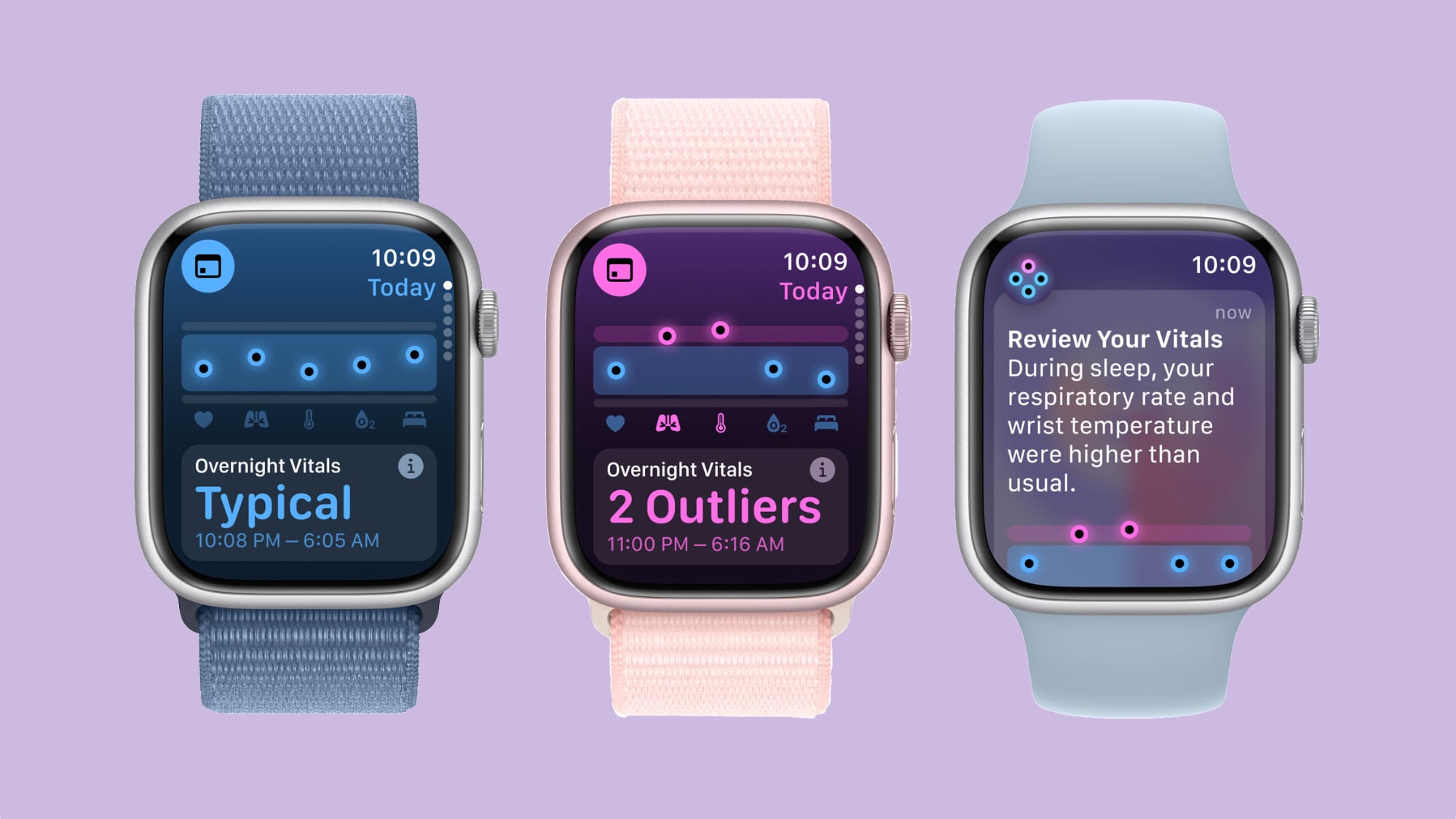
Following the introduction of the Apple Watch Series 10 and watchOS 11's new sleep apnea detection feature last month, Apple executives Jeff Williams, Dr. Sumbul Desai, and Jay Blahnik sat down for an interview with The Independent's David Phelan. The discussion is focused on the Apple Watch's health features.

Williams, who leads the Apple Watch engineering teams, said that Apple was inspired to add more health features to the Apple Watch after CEO Tim Cook received emails from customers who said the Apple Watch potentially saved their lives.
"So, we realized, wow, we have this opportunity – and even more, a responsibility," said Williams. "So, we began to look for opportunities. That's when we started pulling on threads and adding additional sensors and features like irregular rhythm, atrial fibrillation alerts, and all the way through to something like sleep apnea."
Williams added that his own sleep apnea diagnosis and subsequent usage of a CPAP machine to treat the condition provided him with "a new lease of life."
"It was less about pushing any personal agendas – we don't really do that at Apple – but it certainly helps to have experience in terms of being able to reinforce and encourage the team that there's such an opportunity to help people," said Williams. "Everybody in the team is just really inspired by this mission of trying to help people with their health."
Dr. Desai suggested that watchOS 11's new Vitals app that analyzes important health metrics during sleep could eventually work during the daytime too:
"If we could push, over time, to get that type of information during the day, well, we always pull on the thread to see what else we can do," she said.
Blahnik, who leads the teams behind Apple Fitness+ and other fitness technologies at Apple, emphasized the Apple Watch's utility for health and fitness.
"It's easy to forget, but 10 years ago, you didn't really know how far you were running unless you happened to have measured the distance in your car, say," he said. "GPS on the wrist was not a common thing. How measuring your activity adds up to something over your life and your longevity is a big deal."
The full interview can be read at The Independent.
Article Link: Apple Executives Discuss Apple Watch's Life-Saving Health Features in New Interview
Last edited:

